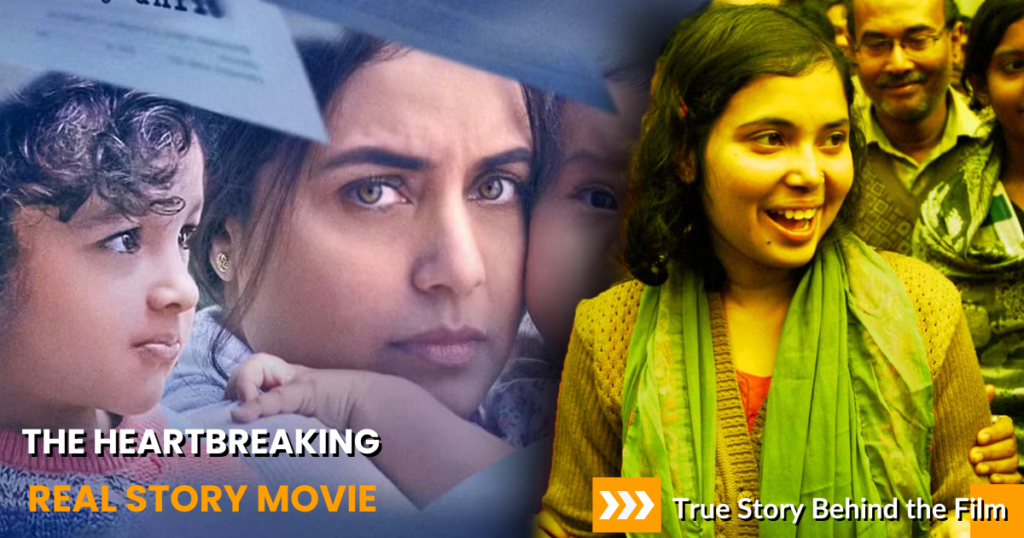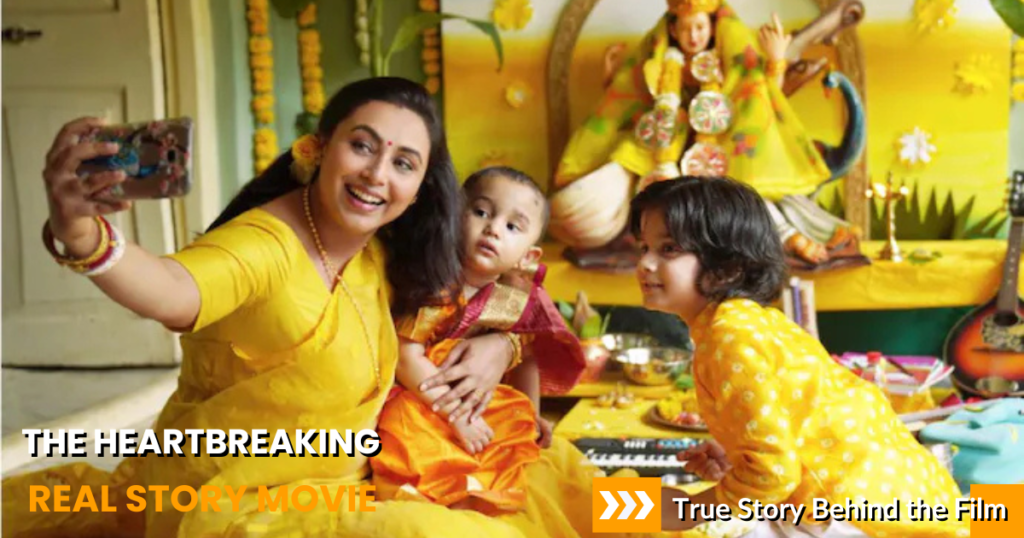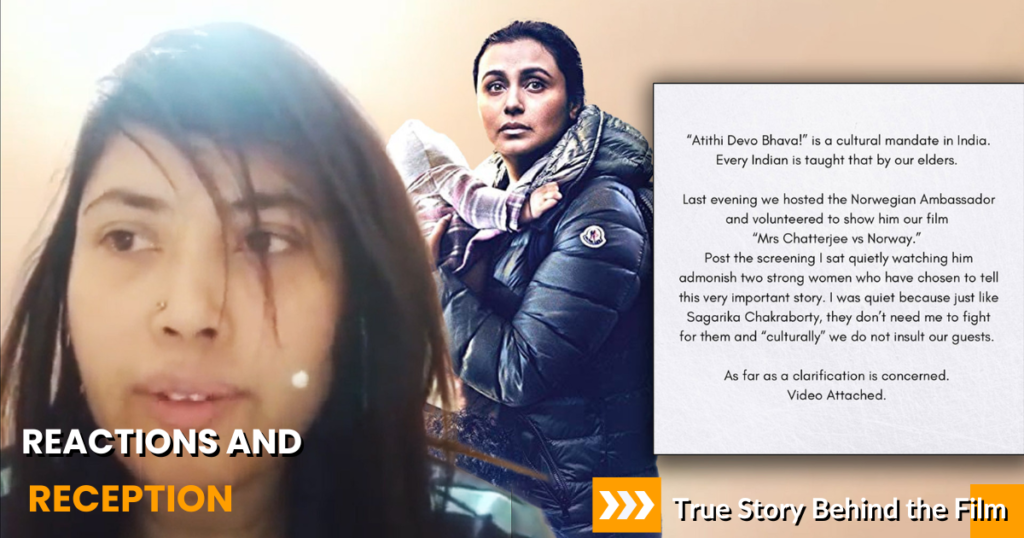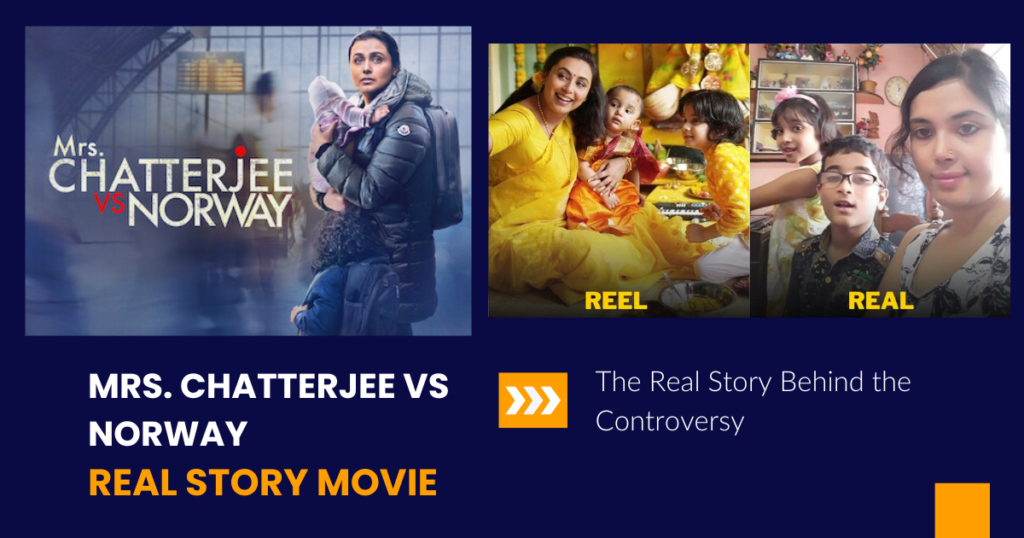The 2023 Bollywood film, Mrs. Chatterjee vs Norway, has captured global attention for its emotionally charged storyline, inspired by a real-life case that shook two nations. Directed by Ashima Chibber and starring the powerhouse performer Rani Mukerji, the movie brings to light the heartbreaking journey of a mother battling cultural differences and legal challenges to reclaim her children.
The Heartbreaking True Story Behind the Film

The Case of Sagarika Chakraborty
The film draws its narrative from the real-life story of Sagarika Chakraborty, an Indian woman whose children were forcibly taken away by Norwegian Child Welfare Services (Barnevernet) in 2011. Living in Norway with her husband and two young children, Sagarika faced allegations of unfit parenting due to cultural misunderstandings.
What Sparked the Controversy?
Sagarika’s parenting methods, rooted in Indian cultural practices, were misinterpreted by Norwegian authorities:
- Hand-feeding her children was deemed unhygienic.
- Co-sleeping with her children was seen as inappropriate.
- Use of emotional expressions and physical affection was categorized as overly intrusive.
Norwegian Child Welfare Services removed the children from their home, alleging neglect and failure to adapt to local norms. This decision triggered an international debate on cultural biases in parenting assessments.
Key Highlights of the Incident
Cultural Misinterpretations
Indian parenting practices often involve close familial bonds, emotional expressions, and hands-on care, which were misconstrued by Norwegian authorities. The case highlighted how cultural differences could lead to severe consequences for families living abroad.
Legal Battles and Emotional Turmoil
Sagarika embarked on a relentless legal journey to fight for her children. Despite being separated from them for over a year, she persisted against a system that seemed to favor local norms over cultural inclusivity.
The Cinematic Adaptation: Mrs. Chatterjee vs Norway

Rani Mukerji’s Stellar Performance
In the film, Rani Mukerji takes on the role of Debika Chatterjee, a character inspired by Sagarika. Her portrayal of a mother’s anguish, resilience, and unyielding love has earned widespread acclaim. Mukerji’s performance immerses the audience into the deeply personal and emotional stakes of the story.
Authenticity and Impact
The movie stays true to the essence of the real incident while dramatizing certain elements for cinematic appeal. By addressing themes of cultural identity, motherhood, and justice, it strikes a chord with audiences worldwide.
Themes Explored in the Film
1. Clash of Cultures
The movie underscores the challenges immigrants face in reconciling their native traditions with the norms of their adopted country.
2. Resilience of Motherhood
At its heart, the story celebrates a mother’s unconditional love and determination to fight against all odds.
3. Questioning Child Welfare Policies
The film raises questions about the fairness and cultural sensitivity of child welfare policies in Western countries.
Reactions and Reception

Global Audience Response
The movie has resonated deeply with viewers, especially parents who empathize with Sagarika’s plight. Its portrayal of cultural misinterpretations has sparked discussions on a global scale.
Critical Acclaim
Critics have praised the film’s poignant storytelling and Rani Mukerji’s compelling performance. The narrative’s balance between emotional depth and factual accuracy has been lauded.
Lessons from the True Story
1. Need for Cultural Sensitivity
Governments and institutions must recognize and respect the cultural practices of immigrant families.
2. Strength in Advocacy
The story showcases the power of advocacy and the importance of standing up against systemic injustices.
3. Role of Diplomacy
The intervention of the Indian government in Sagarika’s case emphasizes the role of diplomacy in addressing such international disputes.
FAQs
Q: Who is Mrs. Chatterjee in real life?
Ans: Mrs. Chatterjee is based on Sagarika Chakraborty, whose fight against Norwegian authorities inspired the movie.
Q: Why were Sagarika Chakraborty’s children taken away?
Ans: Her children were taken due to perceived cultural differences in parenting, including hand-feeding and co-sleeping.
Q: How long did the legal battle last?
Ans: Sagarika’s battle lasted over a year before she was reunited with her children.
Q: Is the movie entirely accurate?
Ans: While the film stays true to the essence of Sagarika’s story, certain elements have been dramatized for cinematic effect.
Q: Where can I watch the movie?
Ans: The film is available in cinemas and is expected to release on streaming platforms soon.


